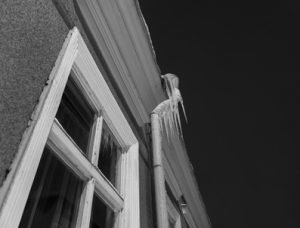 Even though it is summer and we are located in central Florida, we’d like to present this article about frozen pipes. We aim to make this blog a resource to folks all over the country, not just here in Melbourne. Once in a blue moon the temp does drop below freezing here and there have been frozen pipe issues.
Even though it is summer and we are located in central Florida, we’d like to present this article about frozen pipes. We aim to make this blog a resource to folks all over the country, not just here in Melbourne. Once in a blue moon the temp does drop below freezing here and there have been frozen pipe issues.
Wintertime can be very hard on your plumbing and for most homeowner’s, frozen pipes can be any their worst fear coming true. With proper preparation, your home can stay leak free all winter long no matter how frigid the temperatures may get.
Preparation
It is impossible to predict if and when your pipes will burst, so it is best to plan ahead and err on the side of caution with these simple tips:
What If My Pipes Burst?
If your pipes do indeed burst take immediate action! Shut the main water valve off as soon as possible and assess the damage. Apply a heat source to the frozen portion until the water pressure returns. Leave the damaged faucet open so that it can drain properly. Finally, call a plumber to come assess and repair your ruptured pipe if you cannot do it yourself.
Following Repairs
Following a repair, monitor your plumbing regularly. Look for possible leaks, area of rust, or areas that look questionable. By planning ahead to fix problem areas, you will have less of a chance of a leak coming from a weak area. Check your attic and basement for possible faulty areas. A lot of hot water heaters and plumbing run either to the attic or basement. Either way, a ruptured pipe in both areas can do thousands of dollars in damage. Prevent that from happening by being proactive in your home repairs. Hire an inspector or experienced plumber to come and check all your plumbing. They can give you a full assessment of where your problems may lie. They can also give you suggestions to prevent a rupture any time of the year, helping you to save money in the long run. A few dollars now on a good inspection is well worth the investment.